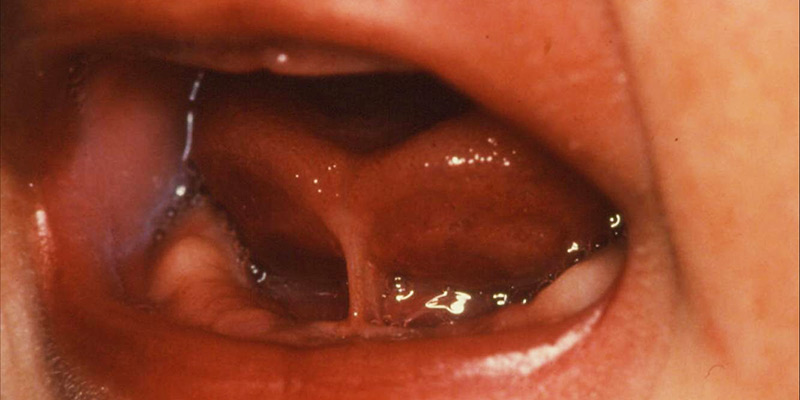A tongue-tie is where the fold of skin under your baby's tongue is shorter than usual and may restrict their tongue's movement.
What to do if you're concerned about tongue-tie
If you’re concerned that your baby may have tongue-tie, NHS Infant Feeding Advisor Marianne has some reassuring advice.
What are the symptoms?
Nothing needs to be done about tongue-tie if there are no feeding issues. Some babies with tongue-tie may appear fussy at the breast and feed infrequently and for short periods. They can slip at the breast and be windy and unsettled. You may also have some nipple pain and damage. Some babies who are bottle fed can experience problems too but this is less common.
What's the solution?
If your baby has difficulty feeding, ask your midwife or health visitor to assess one of your feeds. They will be able to offer support and advice, and if they feel the tongue-tie is causing difficulty with feeding, they'll refer you to a specialist tongue tie clinic. There are several hospitals in Scotland that deal with this issue. It's a minor procedure but it is a surgical procedure and there may be a waiting list of several weeks.
Separating your baby's tongue-tie
Dividing your baby's tongue-tie is a simple procedure. It's usually over in less than a minute, and doesn't usually need a local or general anaesthetic when your baby is below 4 months. It won't be any more dramatic than your baby's vaccinations. There may be a few drops of blood but this isn't normally a problem. They will wrap your baby up with a towel, divide the tongue tie with sterile scissors and bring your baby back to you quickly so that you can feed them straight away. Some mums notice an improvement immediately, for others it'll take a few days.
Getting advice from an Infant Feeding Adviser
If your baby has had difficulty feeding because of a tongue-tie it’s really important to get the right support to assess feeding behaviour. Without this, a tongue-tie division alone is less likely to be a successful solution.
Some clinics have a specialist Infant Feeding Adviser to assess your baby's attachment after tongue-tie and offer you breastfeeding support. However, this is not always available at some surgical services or at dental practices which perform the procedure. In this case, speak to your midwife or health visitor, ask for specialist infant feeding support or call the Breastfeeding Helpline on 0300 100 0212.
 Activities & Play
Activities & Play Behaviour
Behaviour Childcare
Childcare Development & Growing Up
Development & Growing Up Family, Friends & Relationships
Family, Friends & Relationships Feeding Your Baby
Feeding Your Baby Food & Eating
Food & Eating Health & Safety
Health & Safety Mental Health & Wellbeing
Mental Health & Wellbeing Money & Work
Money & Work Online Behaviour & Safety
Online Behaviour & Safety Pregnancy & First Days
Pregnancy & First Days School & Education
School & Education Sleep
Sleep









 Pregnancy & First Days
Pregnancy & First Days
 Sleep
Sleep